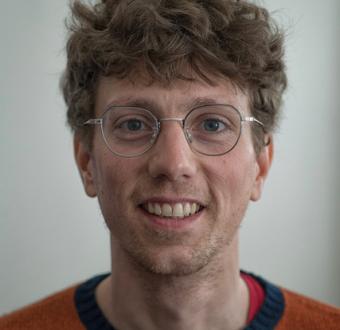
Jonas RANFT
Researcher
Researcher
Biology
Physics
Biomechanics, Biophysics of synapses, Neural network dynamics, Learning
CNRS
Department of Biology
Published on
25 November 2022
, updated on
28 November 2022
Image

Institut de biologie de l’ENS (IBENS)
9ème étage, bureau 906
46, rue d'Ulm 75230 Paris cedex 05
01 44 323731
Theoretical physicist by training, I try to understand living systems using quantitative modeling, ideally in close collaboration with experimentalists.
Field of research
My work can be roughly divided along two main axes, as I am mostly interested in the biophysics of neurons at the cellular level and in the collective organization of neural activity at the network level, including learning.
I use methods from statistical physics and related approaches to study systems composed of many interacting elements, for example postsynaptic domains formed by neurotransmitter receptors and scaffolding proteins, or networks of neurons. My research also draws from dynamical systems theory and nonlinear dynamics, for example when addressing the spatial organization of oscillations of neural activity in the motor cortex. Confronting modeling and theory with experiments is essential, and close collaboration with experimentalists is an integral part of my work.
In the past, I have also worked on the mechanics of growing tissues, and I continue to be interested in biomechanical problems in general.
Publications
Maynard, S. A., Ranft*, J. & Triller*, A. Quantifying postsynaptic receptor dynamics: insights into synaptic function. Nat Rev Neurosci (2022). doi:10.1038/s41583-022-00647-9
Ranft, J. & Lindner, B. A self-consistent analytical theory for rotator networks under stochastic forcing: Effects of intrinsic noise and common input. Chaos 1–20 (2022). doi:10.1063/5.0096000
Chapdelaine, T., Hakim, V., Triller, A., Ranft*, J. & Specht*, C. G. Reciprocal stabilization of glycine receptors and gephyrin scaffold proteins at inhibitory synapses. Biophys J 120, 805–817 (2021).
Kulkarni*, A., Ranft*, J. & Hakim, V. Synchronization, Stochasticity, and Phase Waves in Neuronal Networks With Spatially-Structured Connectivity. Front Comput Neurosci 14, 569644 (2020).
Ranft*, J., Almeida*, L. G., Rodriguez, P. C., Triller, A. & Hakim, V. An aggregation-removal model for the formation and size determination of post-synaptic scaffold domains. PLoS Comput Biol 13, e1005516 (2017).
Cochet-Escartin, O., Ranft, J., Silberzan, P. & Marcq, P. Border Forces and Friction Control Epithelial Closure Dynamics. Biophys J 106, 65–73 (2014).
Campinho, P. et al. Tension-oriented cell divisions limit anisotropic tissue tension in epithelial spreading during zebrafish epiboly. Nat Cell Biol 15, 1405–1414 (2013).
Ranft, J. et al. Fluidization of tissues by cell division and apoptosis. Proceedings of the National Academy of Sciences 107, 20863–20868 (2010).

